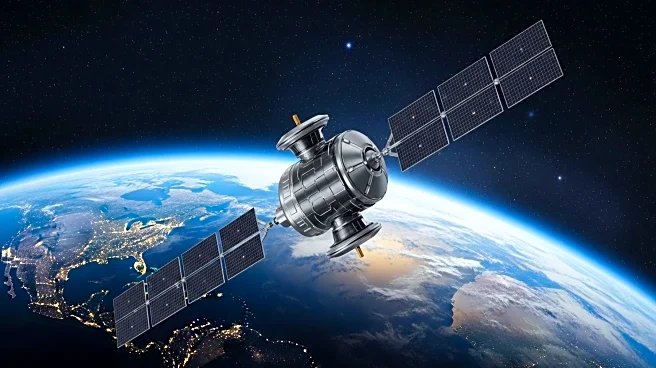What's Happening?
The UK government has announced plans to integrate the UK Space Agency (UKSA) into the Department for Science, Innovation and Technology (DSIT) by April. This decision is part of a broader initiative to reduce government expenditure and civil service costs by 15% by the end of the decade. The move aims to cut duplication and ensure decisions are made with clear ministerial oversight. UKSA, established in 2010, has been primarily funded by DSIT since 2023. The merger is seen as a response to inefficiencies identified in a 2024 National Audit Office report, which highlighted inadequate monitoring and evaluation of project progress within UKSA.
Why It's Important?
The integration of UKSA into DSIT could significantly impact the UK's space ambitions and its position within the European Space Agency (ESA). UKSA has been responsible for civilian space applications and science exploration, contributing over 80% of its budget to ESA. The merger may streamline government stakeholders responsible for the space agenda, potentially enhancing the UK's space-based defense capabilities. However, concerns have been raised about the potential weakening of the UK's position within ESA, especially ahead of an upcoming ESA Council of Ministers meeting that will decide funding for the next three years.
What's Next?
The merger is expected to bring changes within the government, potentially slowing down priorities and making them less clear over the next 12 months. The UK government will need to navigate its relationship with international partners and ESA, ensuring that the integration does not hinder its space strategy. The upcoming ESA Council of Ministers meeting will be crucial in determining the UK's future contributions and influence within ESA.
Beyond the Headlines
The decision to absorb UKSA into DSIT reflects a shift towards a more centralized approach to space policy, reminiscent of the British National Space Centre model prior to 2010. This move may come with challenges similar to those faced by the BNSC, such as limited powers to foster domestic industry. The UK National Space Strategy, published in 2021, outlined ambitious goals for the UK space sector, including becoming Europe's leading provider of satellite launch services. The integration could affect the realization of these goals.








